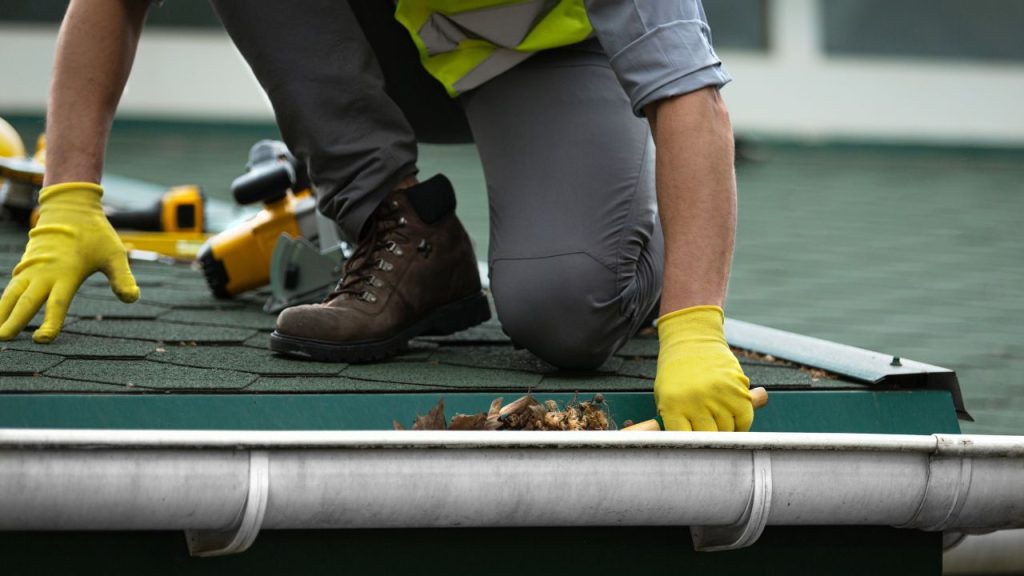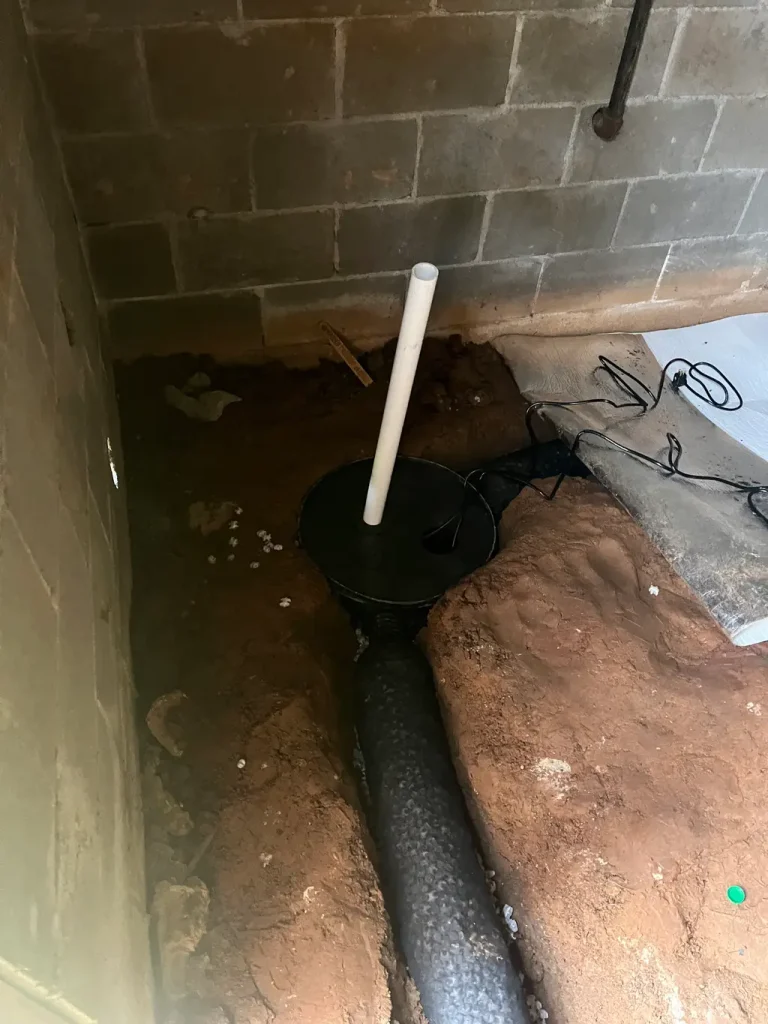Water pooling around house after a storm is a serious concern for homeowners, as it can lead to significant issues if not addressed promptly. Improper drainage can result in water pooling around house foundations, basements, or crawl spaces, causing structural damage, mold growth, and even erosion over time. Unchecked, water pooling around house can compromise your home’s stability and lead to costly repairs.
In this article, we’ll explore effective solutions for dealing with water pooling around house, including preventive measures and expert services from Georgia Foundation Solutions to protect your property from long-term damage caused by water pooling around house.
1. Assess the Situation and Identify the Problem Areas
The first step in addressing water pooling around house is to assess where the water is collecting and evaluate the severity of the issue. Take a walk around your home to identify key areas affected by water pooling around house and determine the necessary steps to resolve the problem. Walk around your house and check the following areas:
- Near downspouts and gutters: Is water collecting directly beneath the downspouts? This can indicate that your gutters are clogged or that your downspouts aren’t directing water far enough away from your foundation.
- Around the foundation: If water is pooling right next to your foundation, it can eventually seep into your basement or crawl space, leading to moisture issues and foundation damage.
- In the yard: Water pooling in certain areas of your yard can signal poor grading or drainage issues, which can lead to long-term erosion or landscape damage.
Once you’ve pinpointed where the water is pooling, you can move on to addressing the root causes.
2. Clear Gutters and Extend Downspouts
Water pooling around house is often caused by clogged gutters or poorly placed downspouts. Gutters are designed to collect rainwater from your roof and direct it away from your home, but when they become clogged with leaves, twigs, and debris, they fail to operate efficiently. Addressing gutter issues is a crucial step in preventing water pooling around house and protecting your foundation.

Here’s what you can do:
- Clean your gutters: Clear any debris from the gutters to ensure that water can flow freely.
- Extend your downspouts: If your downspouts are too short, they may be depositing water directly at the base of your foundation. Extending them so they release water at least 6 feet away from your house can prevent pooling near the foundation.
If you’re unsure whether your gutters or downspouts are the problem, Georgia Foundation Solutions can inspect your drainage system and make any necessary adjustments or repairs to ensure proper water flow.
3. Regrade the Landscape Around Your Home
Improper grading is a frequent cause of water pooling around house after storms. The soil around your foundation should slope away from your home to ensure proper drainage and prevent water from collecting near the foundation walls. When the ground is flat or slopes toward your home, it allows water pooling around house, which significantly increases the risk of foundation damage. Correcting grading issues is essential to stop water pooling around house and safeguard your property.
How to fix grading issues:
- Regrade the soil: Add soil around the foundation to create a slope that directs water away from your house. The general rule is to have a 5% grade, or about 6 inches of drop for every 10 feet away from your home.
- Build swales or berms: Swales (shallow ditches) and berms (raised areas) can help direct water away from problem areas, especially if you have a large yard.
For homeowners dealing with serious grading issues, professional help may be required. Georgia Foundation Solutions specializes in grading and drainage solutions that ensure water is properly diverted away from your home.
4. Install a French Drain or Other Drainage Systems
If you’re noticing frequent pooling around your house after storms, it may be time to install a more permanent drainage solution like a French drain. A French drain is a trench filled with gravel and a perforated pipe that redirects water away from your home and prevents pooling.
Other drainage options include:
- Surface drains: Surface drains collect water from your yard or patio and direct it away through underground pipes.
- Dry wells: A dry well is an underground pit filled with gravel that collects and disperses excess water into the ground.
- Sump pumps: If water is seeping into your basement or crawl space, a sump pump can help remove excess water and prevent flooding.

Georgia Foundation Solutions can assess your property and recommend the best drainage system to prevent water from pooling around your home.
5. Inspect for Foundation Damage
If water has been pooling around your foundation for an extended period, it’s important to inspect for any signs of foundation damage. Water can seep into cracks in the foundation, causing them to widen over time. This can lead to structural issues, basement flooding, or mold growth.
Look for the following signs:
- Cracks in the foundation walls: Hairline cracks are common, but larger cracks or widening gaps should be inspected by a professional.
- Water stains or dampness: Check your basement or crawl space for signs of water intrusion, like wet walls, water stains, or musty odors.
- Uneven floors or shifting walls: These can be signs of serious foundation settling or damage.
If you notice any of these issues, don’t wait to contact a professional. Georgia Foundation Solutions specializes in foundation repair and waterproofing, ensuring that your home remains safe and stable even after heavy storms.
6. Consider Crawl Space Encapsulation
If you have a crawl space, standing water or excess moisture can lead to long-term problems like wood rot, mold, and structural damage. Crawl space encapsulation involves sealing the crawl space with a vapor barrier to prevent moisture from entering.
Benefits of crawl space encapsulation:
- Reduces moisture levels: This prevents wood rot and mold growth, which can damage the structure of your home.
- Improves indoor air quality: By keeping out moisture, encapsulation helps improve the overall air quality in your home, reducing musty smells and allergens.
- Protects the foundation: Encapsulation helps prevent water from seeping into your foundation and crawl space, reducing the risk of long-term damage.
Georgia Foundation Solutions offers professional crawl space encapsulation services, providing a long-term solution to moisture and water intrusion.
How Georgia Foundation Solutions Can Help
If you see water pooling around your house after a storm, it’s important to address the issue before it leads to serious damage. Georgia Foundation Solutions specializes in drainage solutions, foundation repair, and waterproofing services to protect your home from water-related issues. Whether you need help regrading your yard, installing a French drain, or repairing foundation cracks, our team can provide expert advice and solutions tailored to your home’s needs.
Don’t let water damage compromise your home’s stability—contact Georgia Foundation Solutions today to schedule a consultation and get your home back on solid ground.

